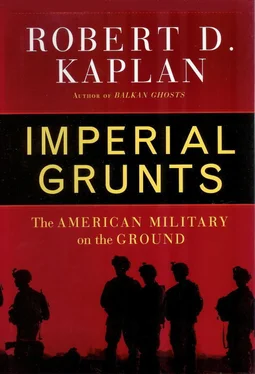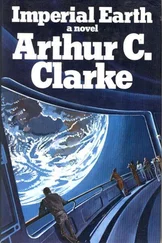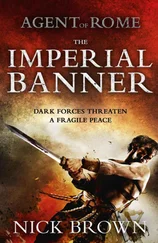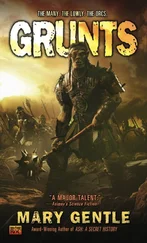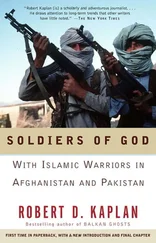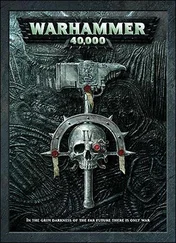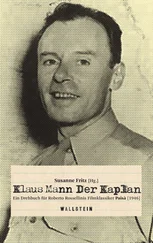The intelligence provided to the marines about IEDs was useless. It told them to beware of garbage, junkyards, old white cars, and so forth. But there was garbage and old white cars everywhere, and the whole town was a junkyard. The “latest and greatest” advice was to beware of kids on old bicycles. There were kids on old bicycles everywhere we looked. Here and there throughout the day we saw expensive late-model sedans—the kind used for car bombs. In Haswa every situation the entire day just smelled bad; thus all you could do was relax, give yourself up to fate, and enjoy the scenery.
Lt. Russell remarked wryly, as though seeing all this from a safe distance: “I remember reading about foot patrols in Vietnam. Over six months the casualty rate from booby traps would be 30 percent, and yet no one ever saw the enemy. That’s the kind of stuff that drives you insane. An enemy you can see focuses your organizational skills and actually reduces stress.”
Alpha Company’s commander was Capt. Philip Treglia of Elida, Ohio. “We will divide responsibility three ways on this patrol,” he told his men. “One marine smiles, talks with the kids and the hajis, and does the public relations. The marine behind him has the responsibility for intel, like registering the GPS position for any guy with a beard who won’t shake hands or gives you a stink stare. The third marine never takes off his sunglasses. His hand is on the trigger all the time. His only job is security.”
Angry complaints from passersby assaulted our ears. “We have no water or electricity”… “The city council that you Americans established was supposed to provide us with services, but it stole the money. They are a bunch of thieves”… “The city council was supposed to build us a soccer field, they’re all bastards. Do something!”… “My house was broken into, can you find and arrest the culprit?”… “My daughter has an irregular heartbeat, can I take her to your military doctor?” In one section of town, anger over water cutoffs was so passionate that Lt. Russell ordered his platoon to distribute a mineral water bottle to one person in every household. As he later admitted, it was a well-intentioned but ineffectual action. But he felt that he just had to do something.
The theme throughout the day was the same: the citizens of this ratty, crumbling, fly-and-garbage-strewn, overcrowded Shiite hellhole of seventy-five thousand were dumbfounded and disappointed that the Americans, who had done what none of them thought possible—swiftly dismantle Saddam’s totalitarian regime—now couldn’t even get the tap water running or the garbage collected.
I saw mounds of chopped-up automobile parts and trash everywhere. Yet here and there were new rooftop satellite dishes. Women stood silently in the alleys, hidden under abayas , just staring at us. People seemed increasingly aware of the outside world, and therefore increasingly dissatisfied at their predicament, even as their town teetered on the brink of chaos and lawlessness, and the city council had lost all legitimacy. Haswa—Nassir wa Salaam—was Liberia or Sierra Leone without the violence. Only tribe and religion held society together here.
“To rule this place,” Lt. Russell observed, “requires an infinite capacity to give, and an infinite capacity to hurt.”
Two days later came the Haswa City Council meeting. In a grim room with busted windows, Marine officers and council members—men in keffiyahs and Western suits, and women with kerchiefs—filled boxy brown sofas. Syrupy tea was offered in small glasses. I expected Lt. Col. Byrne and Maj. Larry Kaifesh of Chicago, the battalion civil affairs officer, to read the riot act to the council for its delinquency in providing constituents with basic services. But it didn’t happen, for the problems turned out to be frustratingly complicated.
The water pumping station was short of electricity. The pumps were out of order. Pipes were broken. Under the new democratic regime, proper tenders for all this work had to be submitted; that would take time. Some of the tenders already submitted turned out to be fake. One of the contractors had absconded with money. Meanwhile, nearby towns were pleading for water hookups, further straining the system. The council was like the one in western Baghdad. Its members were either well-meaning, albeit ineffectual, or not well-meaning at all. A mixture of passivity and intrigue undermined the discussions. The council members became passionate only when asking the marines for personal favors: obtaining weapons licenses and satellite phones.
Listening to all the steps required to get the tap water running, I reflected that Saddam was able to break through bureaucratic logjams by employing fear and coercion. In fact, Iraqis cared more about the tangible necessities of daily life, like water and electricity, than about less tangible things like democracy. Democracy here would be a much slower process than in the Balkans, which represented a far more advanced region of the old Ottoman Empire.
Some of the departed Army officers had confided to me that they got results only by dealing directly with the tribal leaders, even as they paid lip service to the new democratic councils. Marines were coming to a similar conclusion. “This SASO shit just isn’t working,” one noncom told me yet again. “I hope we go back to fighting, like in OIF-I.”
He soon got his wish.
———
On March 31, 2004, a few weeks after 1/5 had arrived from Kuwait, a van with four American contractors was ambushed in Al-Fallujah. The vehicle was blasted with small arms fire and set alight. Frenzied crowds dragged the burned bodies through the streets. Two of the four were hung from a nearby bridge. Some of the body parts were cut off with shovels. Headlines in the United States compared the incident to the killings of Americans eleven years before in Mogadishu, Somalia.
There was relatively little talk about the incident at FOB Abu Ghraib. Marines digested the news silently; discerning what the consequences would be for 1/5 wasn’t that difficult. The next day, April 1, Lt. Col. Byrne disappeared for many hours behind closed doors at the headquarters of the Regimental Combat Team at FOB Al-Fallujah. It was Capt. Jason Smith who quietly pulled me aside in the barracks and told me that 1/5 would be going into Al-Fallujah.
The briefing on April 2 at Camp Abu Ghraib’s Combat Operations Center was low key and terrifically business-like. The taking of a middle-sized city of 285,000 is an amazingly complex affair. Was there enough barbed wire on hand to create makeshift detention facilities? “We need wire, wire, and more wire,” Byrne said, “and that means we need a lot of stakes and pile drivers.” Were there enough translators, MREs, mineral water bottles, ammo, power amps, blue force trackers, and so on? An “ass-load” of refugees was assumed, which would require a whole logistics operation of its own. And how many marines should be left behind to secure the FOB in case of an attack? The attack on Al-Fallujah itself was just one of many details to be worked out.
A pattern set in that should not have been surprising, but which was extraordinary to actually observe: The more it became apparent that the battalion was really going to war, the quieter and more deliberate the discussions became. Marines kept more to themselves, busy packing; deciding what gear to take and what to leave behind could determine life or death days from now. People washed and groomed themselves, assuming it would be the last time for quite a while. In the shower I ran into the Navy doc, Lt. Cormac O’Connor of Indianapolis, Indiana. He prayed that he wouldn’t be busy in the coming weeks. It was a vain hope, he realized.
Power devolved to the head of the “Three Shop,” the Operations section of the battalion: Maj. Pete Farnum of Tipton, Iowa, whose tall, rather hulking, and quietly capable demeanor gave him a particular air of authority. [83] The One Shop was Administration, the Two Shop Intelligence, the Four Shop Logistics, and so forth. All were headed by first lieutenants, except for the Three, which was headed by a major, reflecting the preeminence of Operations.
Maj. Farnum drove the briefings over coming days, variations of which would be part of those given the President of the United States, for the assault on Al-Fallujah, which was a political decision taken at the highest levels, would be worked out in detail here at FOB Abu Ghraib, at the nearby headquarters of the Regimental Combat Team, and at the FOB of another battalion (the 2nd Battalion of the 1st Marines) that would be included in the operation. The RCT building at FOB Al-Fallujah was suddenly besieged by men in civilian hiking clothes and bearing either M-4 assault rifles or Glock pistols: Army Special Forces, Delta, CIA, FBI, and other elements that would have pieces of the Marine-led attack on Al-Fallujah.
Читать дальше
